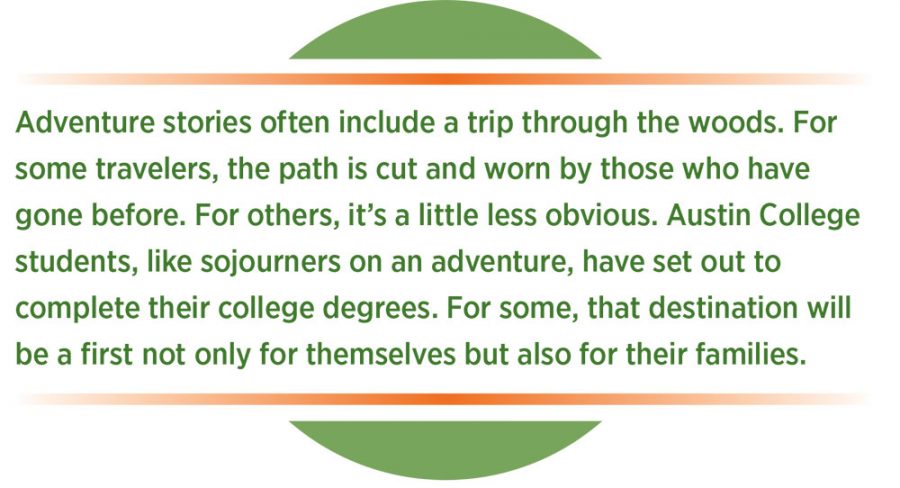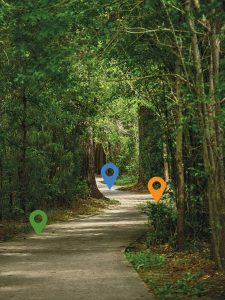 Austin College Launches First-Generation Programing
Austin College Launches First-Generation Programing
By Leigh-Ellen Romm
 mong
mong 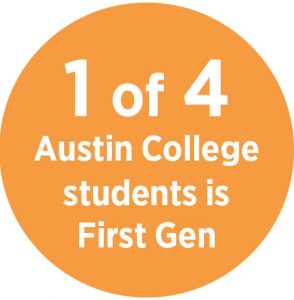 Austin College students, about one of every four qualifies as a first-generation student. A first-generation student is one whose parents or guardians have not completed a bachelor’s degree, or whose parent may have earned a bachelor’s degree in just the past two or three years. These students have been accepted on their academic merit, character, and desire to learn; and with generous financial packages and gift aid, many first-generation students are able to attend Austin College. But, while access to college is one thing, success can be quite another.
Austin College students, about one of every four qualifies as a first-generation student. A first-generation student is one whose parents or guardians have not completed a bachelor’s degree, or whose parent may have earned a bachelor’s degree in just the past two or three years. These students have been accepted on their academic merit, character, and desire to learn; and with generous financial packages and gift aid, many first-generation students are able to attend Austin College. But, while access to college is one thing, success can be quite another.
Director of Student Success and Transitions Traci Howard Moore, along with Dr. Danielle Franks, Assistant Professor of Psychology, have developed a dedicated program to help First Gens navigate the expectations, relationships, and other twists and turns of attending Austin College.

In a summer 2021 workshop with faculty, staff, and students, Moore and Franks set out to prepare the best map possible for First Gens. Many on the team also identified as first-generation students and brought along their knowledge. “In our group we discussed issues we personally experienced and created interventions based on what we wish we would have known,” said Franks.
Key topics that can now be accessed on the First Gen webpage of the College website include navigating financial aid, finding campus resources, a map of the Sherman area, and short profiles with advice from a few faculty, staff, and alumni who completed degrees as first-generation students. There is even a glossary that covers terms from academic honors to withdrawal.

To help these students find one another, Moore and Franks host a monthly First Gen Lunch and Learn Series. “Anyone is welcome, and we cover our topic and share ideas no matter who is here—be it one or dozens,” Moore said. The topics have included making a study schedule, choosing roommates and housing, exploring careers, and more.
Franks continued, “We thought the Lunch and Learn format would be a good way to address some of the content not readily apparent to our First Gens, like financial aid and campus resources. We also discuss some of the intrapersonal and interpersonal struggles first-generation students tend to have, like experiencing imposter syndrome, communicating with parents who don’t understand college life, finding community, and balancing college demands and expectations from family.”
“These sessions can provide a safe space for students to work through some of these issues with fellow First Gens and faculty and staff members,” she said.

Moore has made it her life’s work to help students strategically address their weak points and capitalize on their strengths. A first-generation student herself, she shares three pieces of advice with ’Roos:
“One, asking for help does not make you less worthy or incapable of meeting the challenges of college. We all need help on our journey at some point,” she says. “Two, do not be afraid to cultivate additional opportunities for support on campus. There are so many people here who are ready and willing to help. And, three, surround yourself with people who ‘see’ you, who believe in you, and who motivate you.”
She regularly meets with students from all areas of campus and helps make needed connections for academic assistance, medical or counseling help, or recommendations for co-curricular activities.
In its first year, the First Gen initiative has proven to be valuable. “In all of our First Gen programming, the overarching goals are to demystify the college experience and communicate that First Gens belong and are embraced within the Austin College community,” Franks said. With information to light the way, these first-generation students, who are trailblazers for themselves and their families, will cut their own clear path for the future.
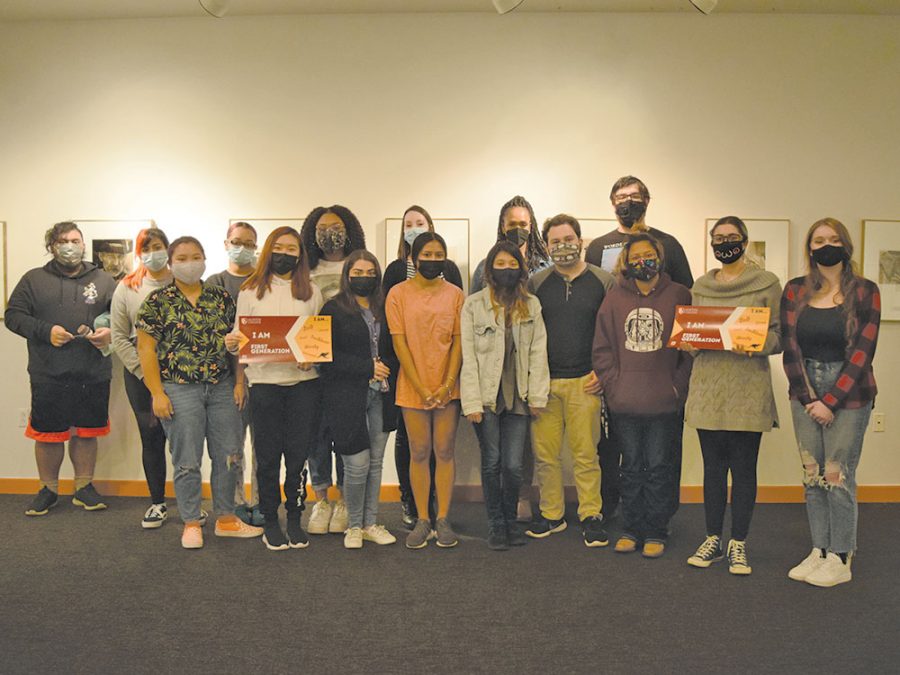
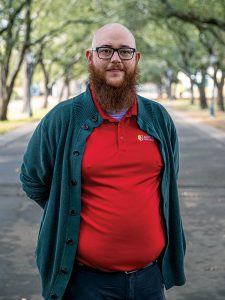 Dr. Eric Gobel-Lynch
Dr. Eric Gobel-Lynch
Assistant Director of the Academic Skills Center
What advice do you have for current first-generation students?
Embrace your vulnerability. For me, this meant introducing myself to my professors after class in the first week, saying “yes” to trying new activities, and putting myself out there to make friends. It also meant leaning into the different expectations of college. I remember getting feedback on a research paper draft my first semester that required me to completely alter my approach. I was disheartened by how “badly” I had done, but realized that if I wanted to be successful, I would have to learn what success looked like, and how to achieve it.
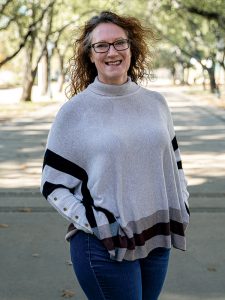 Dr. Renee Countryman
Dr. Renee Countryman
Associate Professor of Psychology
Neuroscience Program Director
The Richardson Chair for the Center of Research, Experience, and Transformative Education
What does being a first-generation student mean to you?
It means that I worked hard to change the story of my family tree. It also means that I didn’t know what I was doing most of the time. I am so lucky to have fallen in love with teaching so that I can help other students find their way as they navigate through college.
 Juanita Enriquez ’25
Juanita Enriquez ’25
Intended Majors: Environmental Studies and Music
How has the First Gen programming helped you?
I have gained so much knowledge at the lunch talks about things they don’t tell you in high school. The lunches remind me I’m not alone. I and many other students came from families who didn’t have the same opportunities or applied pressure as other students. I have been working so hard in college, and I realized I can do it, especially with all the resources Austin College provides, such as the writing center and tutoring.

